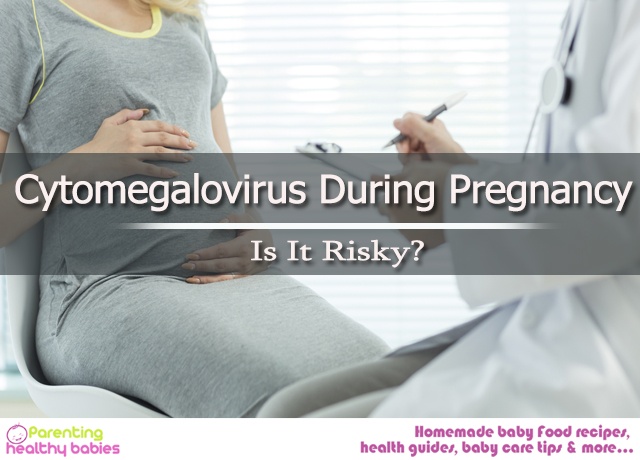Cytomegalovirus, also known as CMV, belongs to the herpes virus family, which is inclusive of chicken pox, cold sores and infectious mononucleosis. Majority of American adults are affected by this common virus. The most amazing part of this virus is that it comes and goes without notice, without many symptoms. However, reports have come which have evidence that this virus has the ability of creating complications for an unborn baby.
How common is the cytomegalovirus (CMV)?
You might not know but more than half of pregnant women have CMV virus dormant in their bodies. This might be there from some previous infection, which happened during childhood. If the dormant virus is already there, there are no risks of catching that again during pregnancy. Many women have CMV while they are expecting. It has been seen that about 1-4%of pregnant women get cytomegalovirus for the first time and in that 1 in 3 women transmit the virus to the baby even before delivery.
Read More: Cytomegalovirus in Babies Signs, Symptoms, Treatment
Transmission of the virus
There are chances of CMV transmission when a woman is in prolonged contact with some kind of infected body fluid. This might include urine, blood, saliva, mucous, semen and even feces. Many women work with little kids and their chances of infections are higher. This is because the cytomegalovirus is very commonly found in the urine and saliva of young kids, particularly in the age group of 1-3years. The infection can be spread among many toddlers at playgrounds and at various day care centers.
Moreover, the CMV virus can be transmitted from the blood of the mother to the baby at any time during the whole pregnancy period. The infection transmits through the placenta. This is more common when the infection of the mother is for the first time. It might also take place when the infection is with a different strain of the CMV. There are also chances of the virus getting ‘reactivated’ as the immune system gets compromised due to some serious illness or health condition.
Who are at high risk of CMV?
Women who did not have prior infection with CMV before pregnancy are at high risk of getting the infection during pregnancy. It is difficult to diagnose the problem at the first go as there are so prominent symptoms. Even if there are symptoms, they match with signs and symptoms of other kinds of viral infections. Serious problems from cytomegalovirus infections take place mainly in earlier phases of pregnancy. It is in the initial trimester that the chances of infections are high. Hygienic precautions are highly recommended at this time of the pregnancy so that the chances of infections are minimized.
Read More: Cold Sores During Pregnancy: Can They Be Dangerous?
What are the risk factors associated with CMV infection during pregnancy?
Majority of babies who are seen to be infected with cytomegalovirus during pregnancy do not show any signs of infection at birth time. However, if some infants show symptoms, these will include:
- Seizures
- Premature birth
- Small size right at birth
- Small size of head (microcephaly)
- Neurological defects and deficits
- Lung, spleen and liver problems
There are some babies, which do not show any kinds of symptoms during birth. However, these kids might show some severe symptoms at later stage of life. Some of these include:
- Vision or hearing loss
- Motor and learning disabilities
Symptoms of CMV in mothers
It is true that in most of the cases, CMV comes and goes back without showing any prominent symptoms. However, some would-be-mothers have some of the below mentioned symptoms:
- Constant and persistent fatigue and tiredness
- Fever
- Sore throat
- Swollen glands
These symptoms are similar to other health conditions. Therefore when such symptoms occur it is always recommended to contact the health care professional and get the required tests done.
Is it possible to prevent cytomegalovirus infection?
One of the best ways of preventing and dealing with CMV infections is practicing hygiene in the best possible manner. For pregnant women, mentioned below are some useful tips:
- Try avoiding sharing cups, utensils, foods and toothbrushes with others
- Try avoiding contact with saliva of children
- Wash your hands thoroughly with soap and water
- Clean objects and surfaces which have chances of having body fluids on them
Presently, there is no vaccine available for preventing CMV infection.
